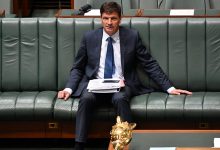As the federal parliament readies to wind up for the year and heads into its summer recess, key Morrison government energy reforms remain in limbo, stalled in a legislative backlog that will further delay the implementation of the Grid Reliability Fund, the UNGI program and implementation of the Technology Roadmap.
Thursday represents the last sitting day for federal parliament in 2020, with parliament not scheduled to return until February next year. It also represents another lost year for energy policy.
A number of the Morrison government’s energy policies will end the year unresolved, with federal energy and emissions reduction minister Angus Taylor ending 2020 without a single piece of legislation through parliament. The clean energy industry, and institutions such as the Enegy Security Board, has cited the lack of federal policy as one of the chief impediments to new investments.
One substantial piece of the government’s policy agenda, the establishment of a $1 billion Grid Reliability Fund, remains stalled, with legislation designed to create the fund and allocate responsibility to the Clean Energy Finance Corporation (CEFC) for its administration stalled in parliament.
A series of legislative amendments that would establish the Grid Reliability Fund was introduced to parliament in August, but have not progressed, with the amendments still stuck before the House of Representatives and have yet to be debated.
The lack of progress on the Grid Reliability Fund has flow-on impacts for other government policy, particularly the Underwriting New Generation Investments (UNGI) program, which needs to fund to provide financial support for a dozen pumped hydro and gas generators that were shortlisted under the UNGI program nearly two years ago.
The lack of legislation to create the Grid Reliability Fund, now not likely to occur before March next year at the earliest, has left a number of major energy infrastructure investments left in limbo.
To date, the only successful outcome of the UNGI program has been $8.7 million in funding that was provided through the federal budget to Trevor St Baker’s Vales Point coal fired power station, to pay for upgrades.
Additionally, the Morrison government has not tabled a package of flagged amendments that are set to further open up both the CEFC and the Australian Renewable Energy Agency (ARENA) to provide funding to carbon capture and storage projects.
Officials from the Department of Industry, Science, Energy and Resources told a recent session of senate estimates that a further package of legislative amendments would be forthcoming, that would make further changes to both the investment mandates of ARENA and the CEFC.
The additional amendments will further expand and align the investment remit of the agencies, enabling funding to be directed to other priority technologies identified by the government’s Technology Roadmap, include funding for carbon capture and storage projects.
“The government has said also publicly that its intention is to amend the mandate of the CEFC and that of ARENA to be able to support the Low Emissions Technology Roadmap, which includes carbon capture and storage,” department deputy secretary Jo Evans told senate estimates.
The planned legislative changes that could also see the CEFC opened up to investing taxpayer funds in gas projects, including those that operate at a loss, have been met by strong criticism. Opposition from the plan has been expressed by many of the former heads of the CEFC and ARENA, who combined to issue a joint statement calling on the Morrison government to abandon plans they described as “flawed”.
While the parliamentary year has been disrupted by the Covid-19 pandemic, which restricted the ability of parliament to sit throughout much of 2020, several of the state parliaments have successfully passed legislation implementing milestone reforms to the energy sector.
This includes the successful passage of legislation through the New South Wales parliament, implementing the state’s electricity infrastructure strategy, that is set to unlock as much as $32 billion of investment in new clean energy and storage projects. The legislation survived an attempt from the One Nation party to derail the legislation and forced the parliament to undertake a marathon 30-hour debate to deal with almost 250 amendments put forward by leader Mark Latham.
Federal energy and emissions reduction minister Angus Taylor, and the department, have been contacted for comment.










